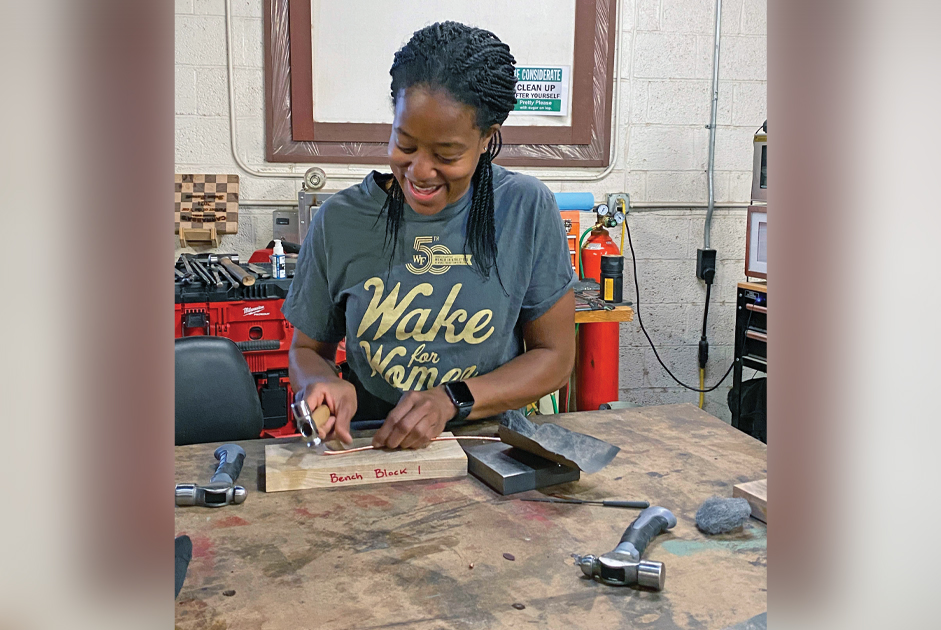Have you ever started running to a song and found the steps matched the rhythm? As the music changed, your body began to mimic the new cadence, whether it was an increase or decrease of speed. Imagine the pendulums of two clocks on opposite ends of a room, swinging at different rates. After a period of time, the two pendulums would sync together. Our brainwaves perform in similar ways, syncing with the music and changing the speed of our breathing to match the rhythmic sounds and bodily movements. All this occurs in the forehead region and the upper backside of the cranium, termed the “prefrontal cortex” and the “parietal lobe” of the brain. These two areas affect your emotions and mood. Doctors have discovered that meter, timber, rhythm, and pitch in music can remove a feeling of trepidation or anxiousness, sad feelings or depression for a positive emotional response, or elevate focus and determination.
Consider the ways music changes your mood or prepares your spirit. From running to high-cardio exercises, preparing for a big presentation or exam, the rhythm and pitch, or the “drum beat,” alters the thought processes and decisions, allowing darkened thoughts to be “whisked” away. Seeking a means to calm your nerves and help your mind concentrate? Try listening to Mozart, which, studies have proven, enables memorization and focusing to be more manageable.
- Research has also concluded that people who are stressed choose to listen to music which matches their mood. For instance, lyrics help soothe people experiencing personal loss or anger to achieve understanding by identifying with the music and the words of a song.
- According to research, whether the music is a classical masterpiece, such as a symphony by Beethoven, or a number by a grunge rock band like Nirvana, loud music can boost positive feelings or change the emotion from frustration to happiness! (Please note: It is important not to listen to music at 88 decibels for longer than four hours. One in five teens who do this are experiencing hearing loss.)
- Want to learn how to remember information? Try singing the words to a familiar tune. Music aids in connecting our memories to factual information. It is how young children learn their ABCs.
Peter Hernandez
Stories of new songwriters and performers can encourage a following. Growing up in Honolulu with a large family of musicians, Peter Hernandez began impersonating Elvis and singing on stage at the age of three. He also performed a broad range of songs from Michael Jackson, The Isley Brothers, the Temptations, and James Brown. Given the stage name “Bruno,” Peter was performing with his dad’s band five days a week by the tender age of four. The diverse genres of music he was exposed to in his youth took root and blossomed within him. Peter knew he didn’t want to become the next Latin singer; instead, he wanted to imbue his love of great music with his own. The journey to develop into an artist took time; yet Peter Hernandez did eventually become famous. He is known today as Bruno Mars.
Exposing Children to Great Music
From a booster seat, a young child begins singing along to the refrain of “You Should Be Dancing” by the Bee Gees. In amazement, a parent asks, “Where did you hear that song?” “Despicable Me, the first movie!” is the response. Just through the Despicable MeandMinionfranchise, children have expanded their understanding of music to also include CeeLo Green, Pharrell Williams, The Beatles, Michael Jackson, and many others. Considering all the movies children sit and watch again and again, your six- or eight-year-old child may not only like a wide range of music genres, but enjoy the rhythm, the percussion, the vocal range, and the lyrics of many artists of any decade.
Finding Your Own Therapy
Great phone apps have made listening to our favorite music much simpler. We can now create playlists according to mood and play them when our spirit requires a particular emotion. Music inspires all of us to sing along, revisit a fond memory of time, place, or person. If you have ever had a longing to play those ivory keys, pluck the strings, or beat the drum, therapy does not have to come from professional musicians, it is within you to make a beautiful sound and create a rhythm for family and friends, or simply for your own enjoyment!























